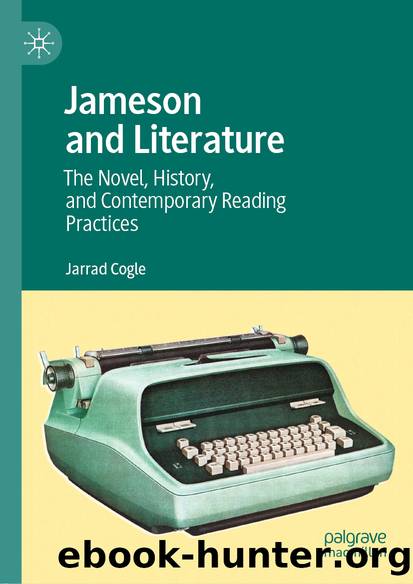Jameson and Literature by Jarrad Cogle

Author:Jarrad Cogle
Language: eng
Format: epub
ISBN: 9783030548247
Publisher: Springer International Publishing
While criticisms of totalisation or generalisation have persisted throughout his career, this more specific accusation of a cultural imperialism has become important to our current perception of Jameson. His essay âThird-World Literature in the Era of Multinational Capitalism â (1986), and Aijaz Ahmadâs famous rebuke âJamesonâs Rhetoric of Otherness and the âNational Allegoryââ (1987) is likely the most famous controversy of Jamesonâs career. The debate has particular relevance to his discussions of modernism, as we will see below. Firstly, however, it will be necessary to summarise this debate and its consequences.
Jamesonâs essay âThird-World Literature in the Era of Multinational Capitalism â is an attempt to see regional literatures in relation to varying histories of colonisation, as well as differing positions within contemporary global capitalism. For Jameson, third-world literature is able to perform more varied operations than analogous Western material. He argues that âone of the determinants of capitalist culture, that is, the culture of the western realist and modernist novel, is a radical split between the private and the public, between ⦠the domain of sexuality and the unconscious and that of the public world of classes, of the economic, and of secular political power: in other words, Freud versus Marxâ [14, p. 69]. In contrast, Jameson interprets the work of two major figuresâLu Xun from China and Ousmane Sembène from Senegalâin order to demonstrate that âthird-world texts, even those which are seemingly private and invested with a properly libidinal dynamic ⦠necessarily project a political dimension in the form of national allegoryâ [14, p. 69]. The national allegory hypothesis is also tied to Jamesonâs notion of cognitive mapping, whereby âwhat is here called ânational allegoryâ is clearly a form of ⦠mapping of the totality, so that the present essay ⦠sketches a theory of the cognitive aesthetics of third-world literatureâ [14, p. 88n].
Nevertheless, Jameson reinforces his position as a critic operating firmly within a US context. As Neil Lazarus notes, Jameson originally wrote âThird-World Literatureâ as a âmemorial lecture at the University of California, San Diego honouring Jamesonâs academic colleague and friend, Robert C. Elliotâ [15, p. 55]. In the essayâs lengthy preambleâwhich foregrounds the difficulty for Western readers to engage with non-canonical textsâJameson seems to assume that his audience is entirely comprised of Western academics. He returns to this notion later in the piece, where he claims:Any articulation of radical difference ⦠is susceptible to appropriation by that strategy of otherness which Edward Said, in the context of the Middle East, called âorientalism.â It does not matter much that the radical otherness of the culture in question is praised or valorized positively, as in the preceding pages: the essential operation is that of differentiation, and once that has been accomplished, the mechanism Said denounces has been set in place. On the other hand, I donât see how a first-world intellectual can avoid this operation without falling back into some general liberal and humanistic universalism: it seems to me that one of our basic political tasks lies precisely
Download
This site does not store any files on its server. We only index and link to content provided by other sites. Please contact the content providers to delete copyright contents if any and email us, we'll remove relevant links or contents immediately.
The Power of Myth by Joseph Campbell & Bill Moyers(1068)
Half Moon Bay by Jonathan Kellerman & Jesse Kellerman(987)
A Social History of the Media by Peter Burke & Peter Burke(987)
Inseparable by Emma Donoghue(983)
The Nets of Modernism: Henry James, Virginia Woolf, James Joyce, and Sigmund Freud by Maud Ellmann(913)
The Spike by Mark Humphries;(812)
The Complete Correspondence 1928-1940 by Theodor W. Adorno & Walter Benjamin(789)
A Theory of Narrative Drawing by Simon Grennan(782)
Culture by Terry Eagleton(776)
Ideology by Eagleton Terry;(743)
World Philology by(719)
Farnsworth's Classical English Rhetoric by Ward Farnsworth(715)
Game of Thrones and Philosophy by William Irwin(712)
Bodies from the Library 3 by Tony Medawar(709)
High Albania by M. Edith Durham(705)
Adam Smith by Jonathan Conlin(695)
A Reader’s Companion to J. D. Salinger’s The Catcher in the Rye by Peter Beidler(688)
Monkey King by Wu Cheng'en(654)
Comic Genius: Portraits of Funny People by(652)
